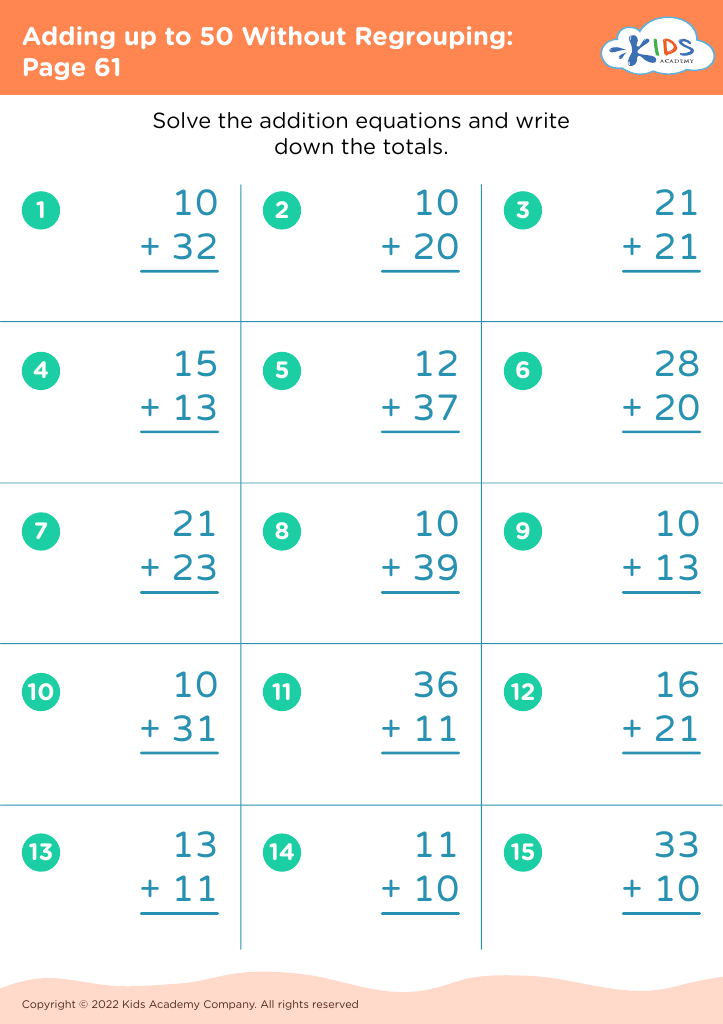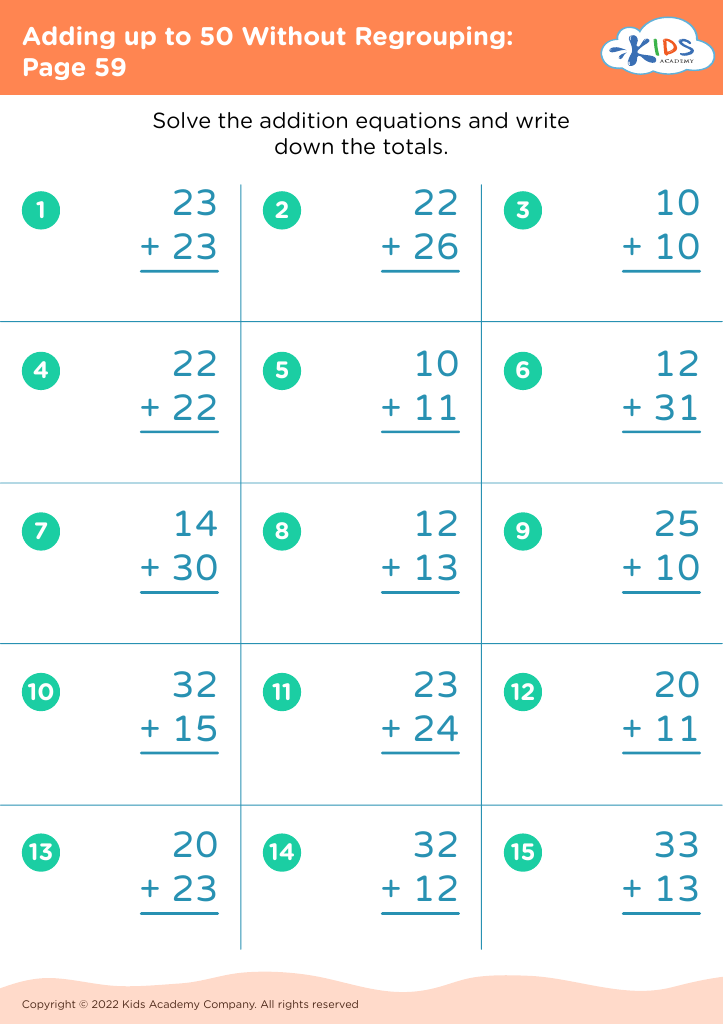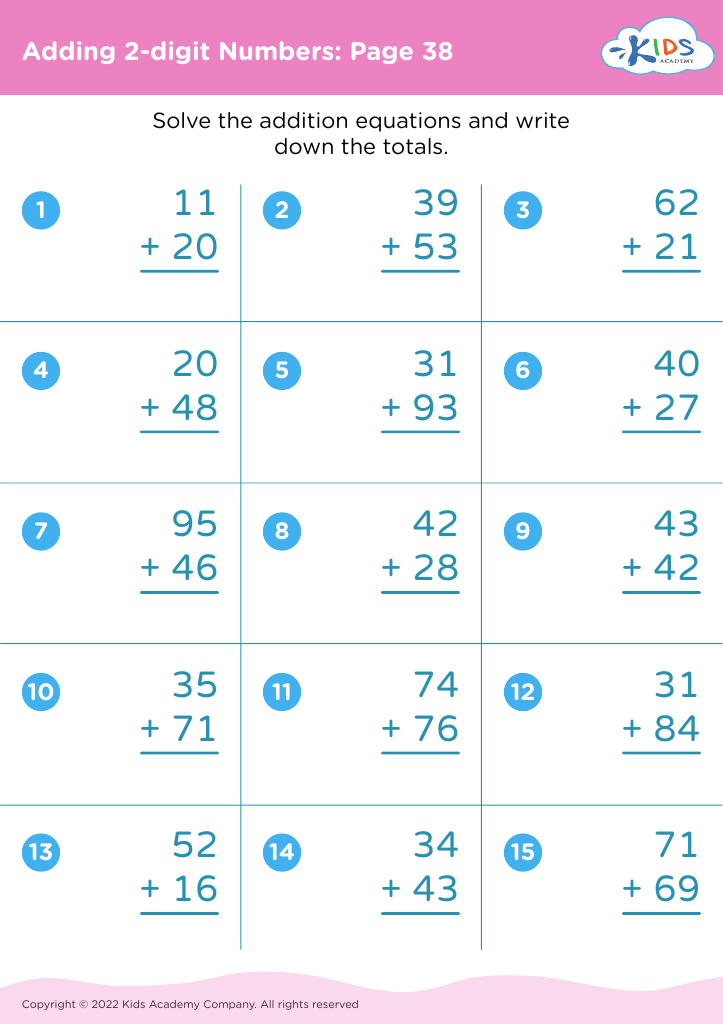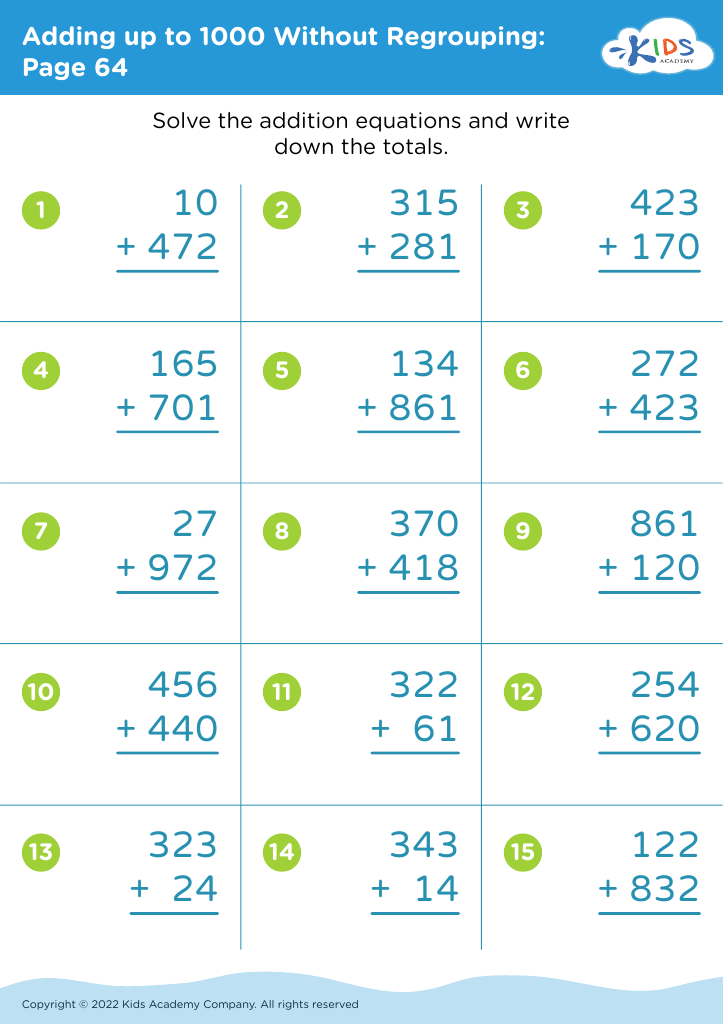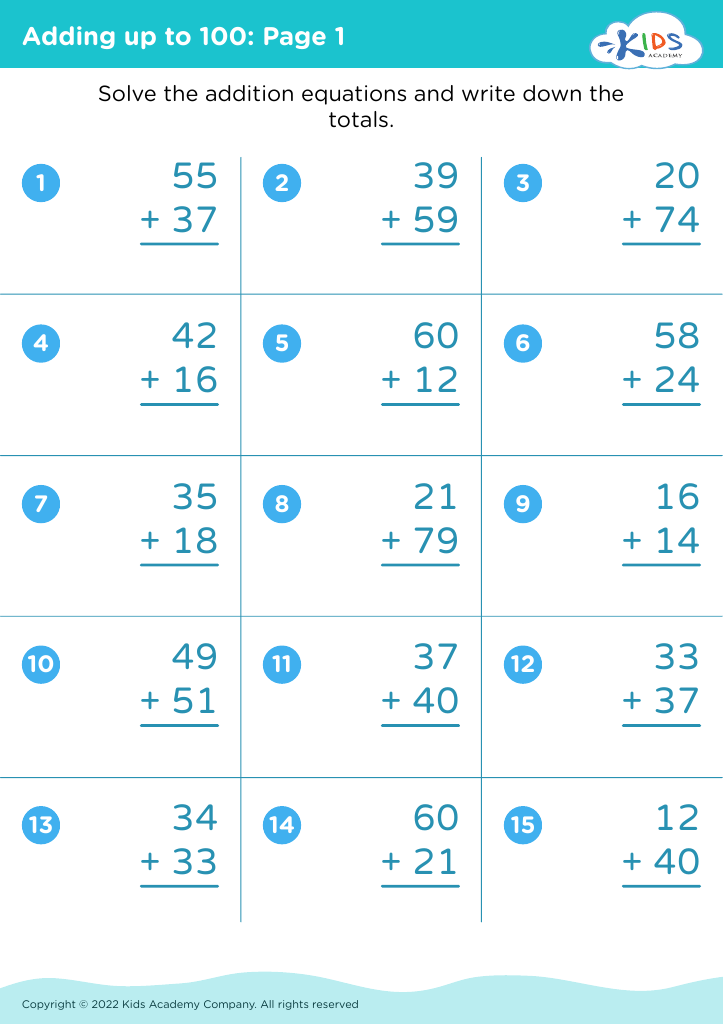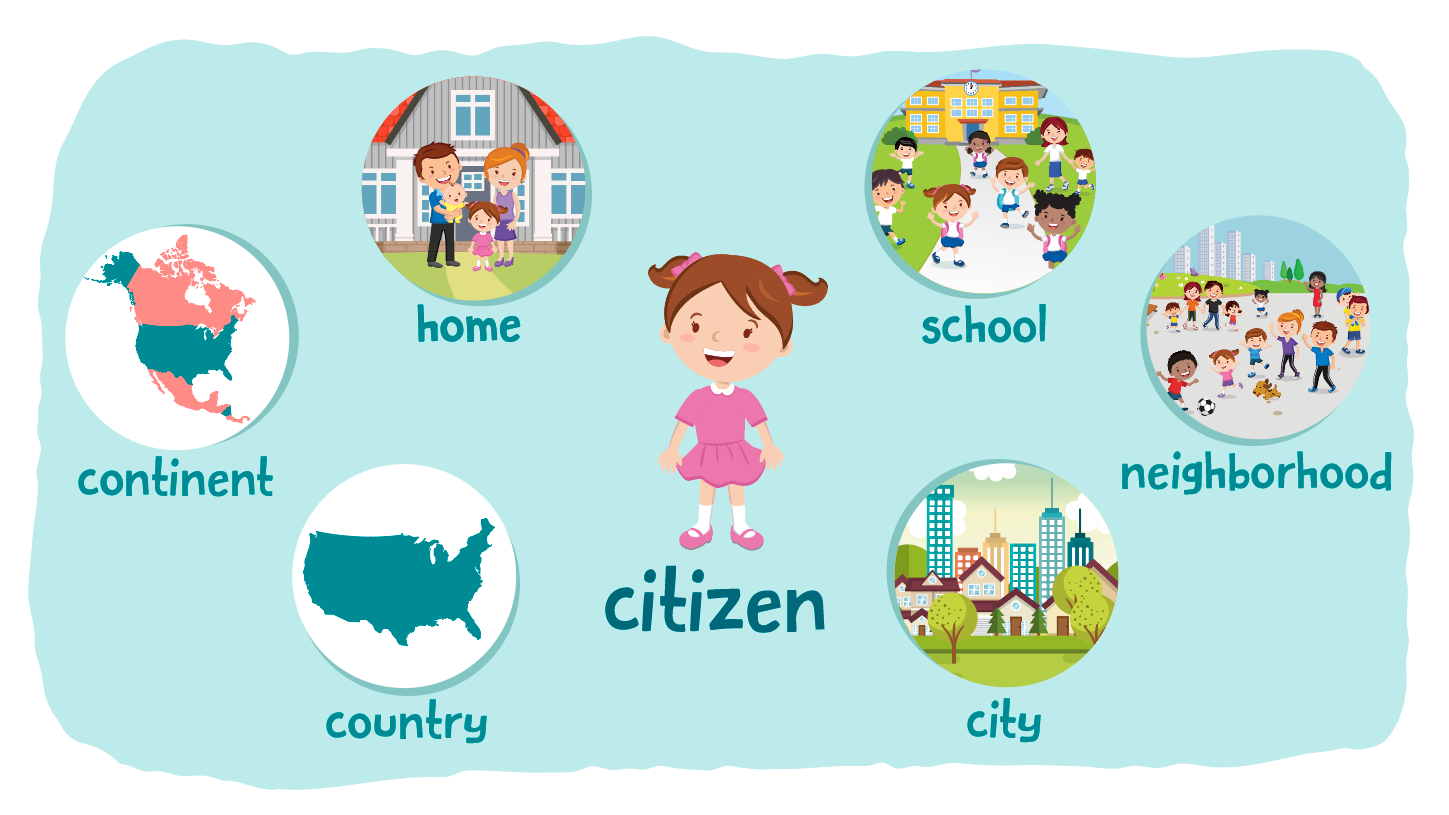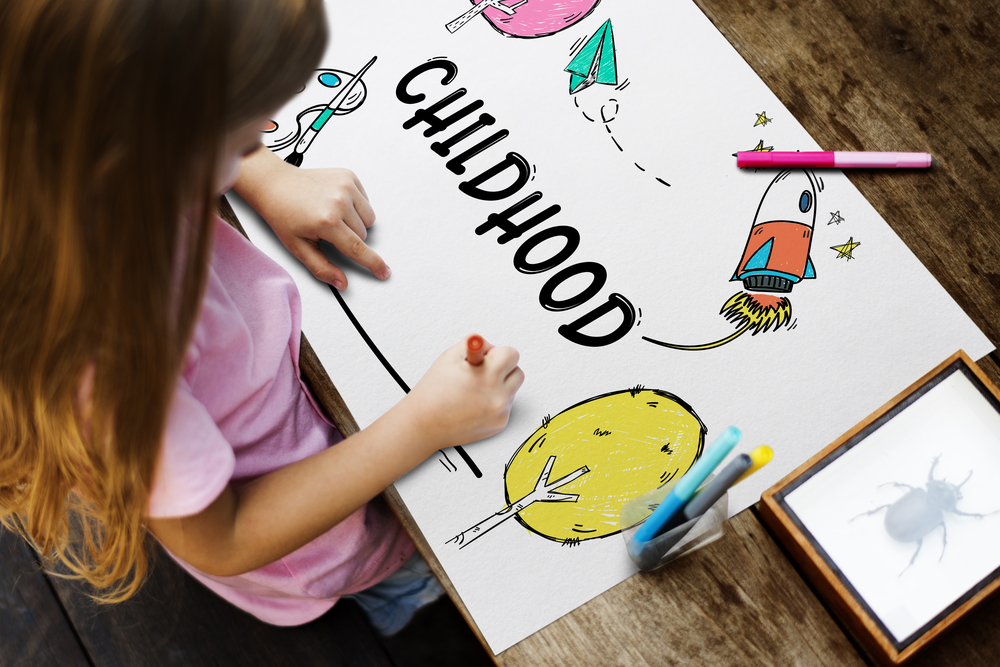Basic addition practice Worksheets for Ages 6-8
16 filtered results
-
From - To
Introducing our Basic Addition Practice Worksheets for Ages 6-8, designed to make learning math fun and engaging! These printable worksheets help young learners build essential addition skills through a variety of exercises, including visual aids, number lines, and colored illustrations. Perfect for both home and classroom use, our resources cater to different learning styles and foster confidence in math. With progressively challenging problems, these worksheets ensure that children grasp foundational concepts while enjoying the process. Dive into the world of math with our entertaining activities and watch your child thrive in their addition skills! Start practicing today for a brighter math future!
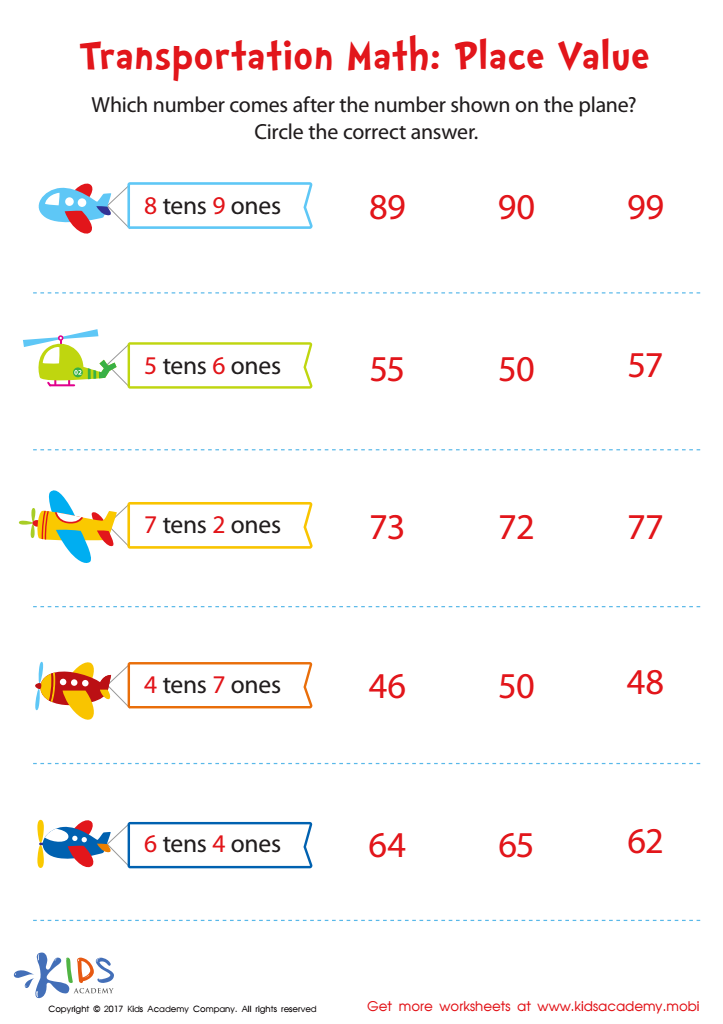

Transportation Math Printable
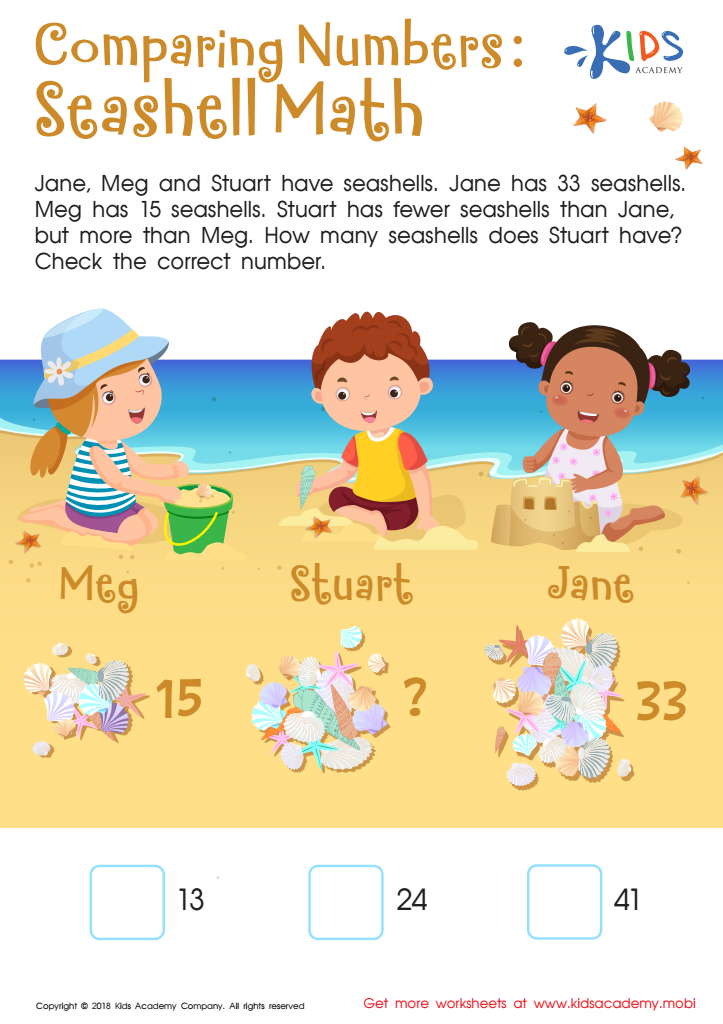

Seashell Collectors Worksheet
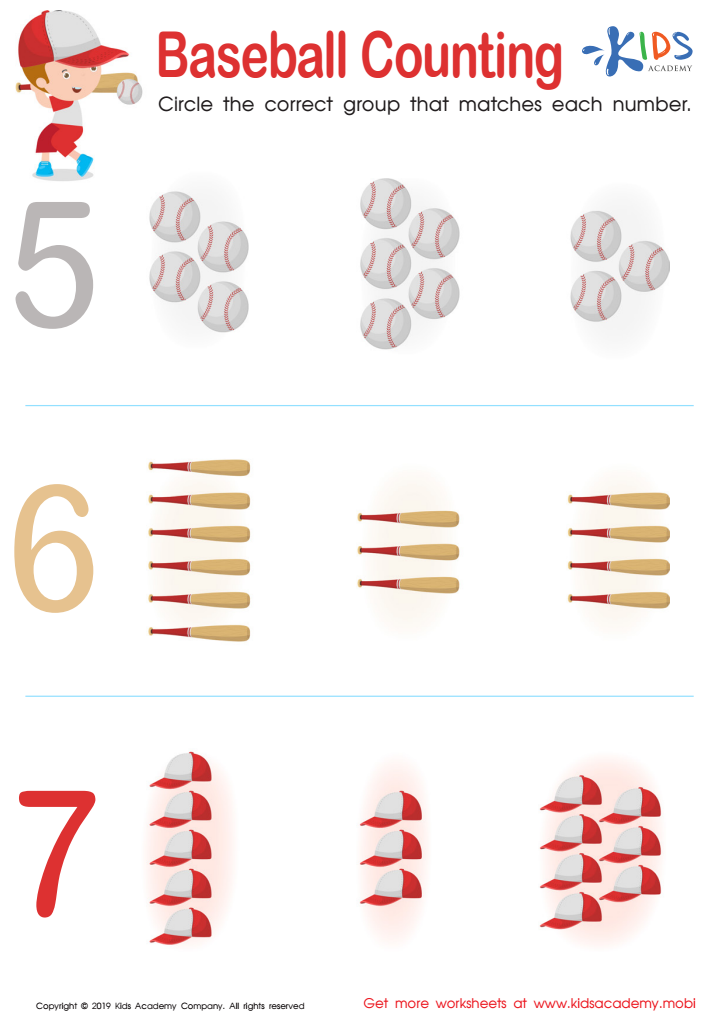

Baseball Counting Worksheet
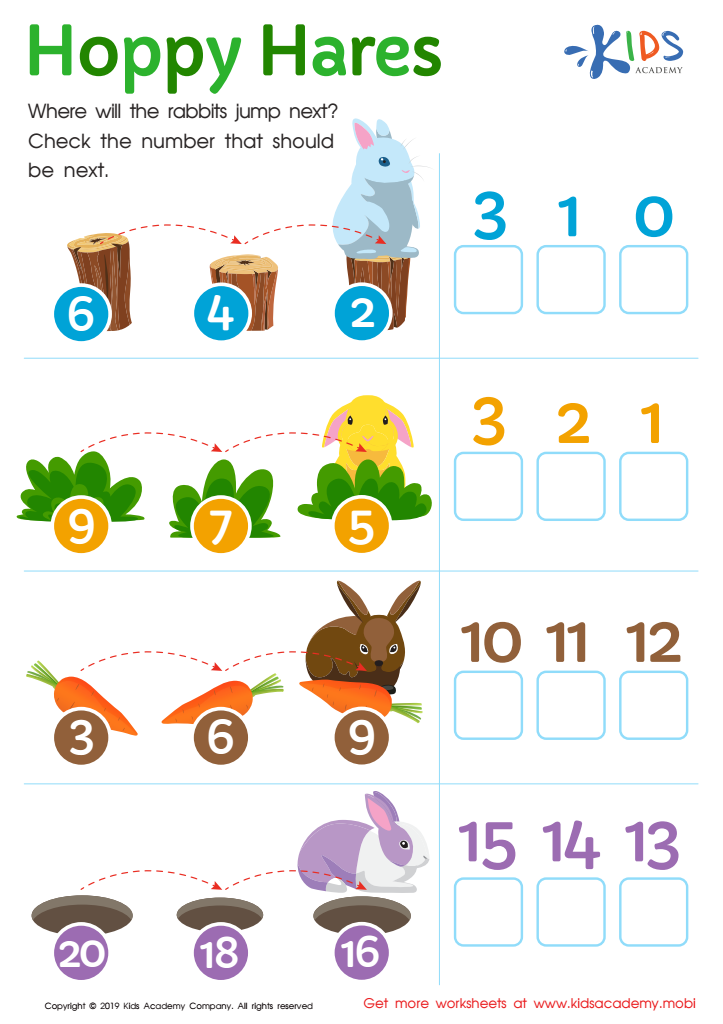

Hoppy Hares Worksheet
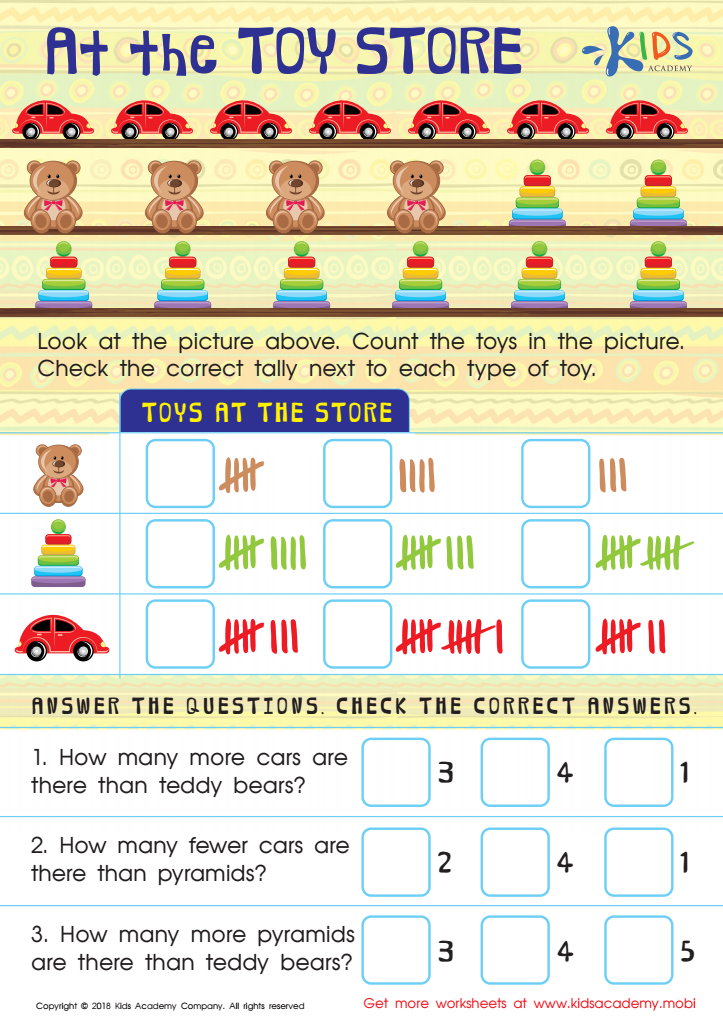

Tally Chart: At the Toy Store Worksheet
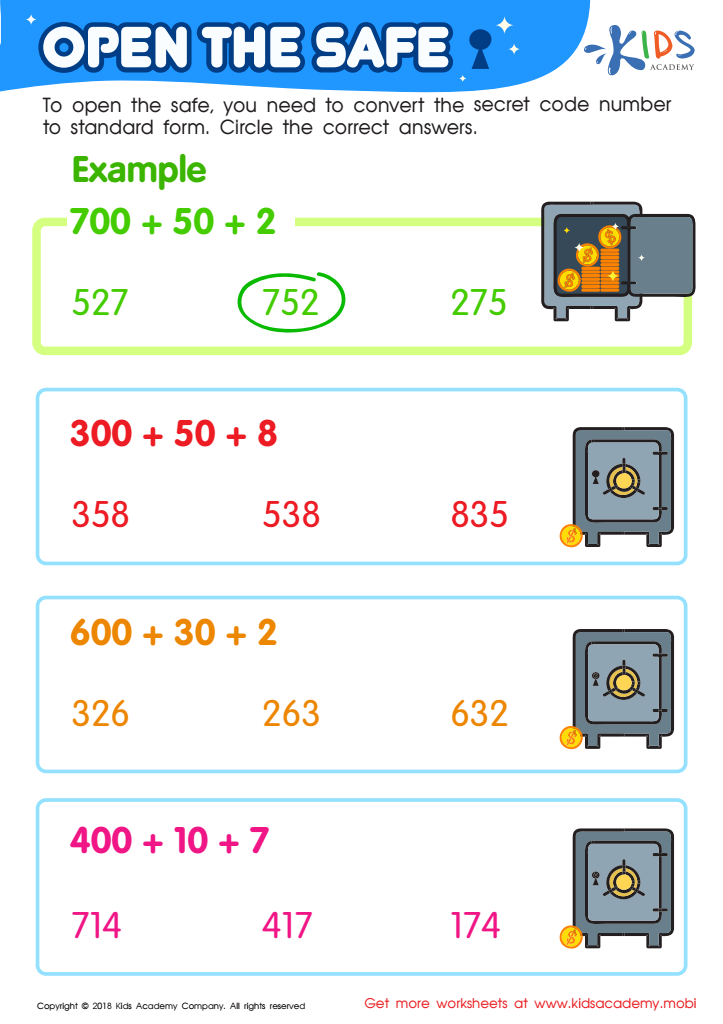

Open the Safe Worksheet
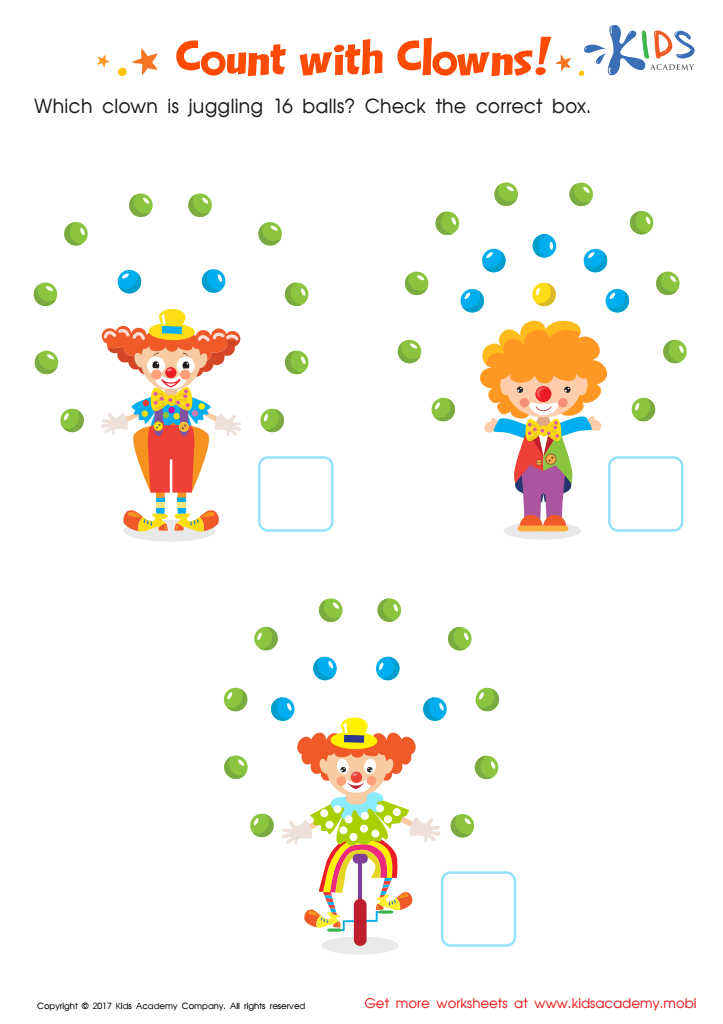

Count with Clowns Worksheet
Basic addition practice is crucial for children aged 6 to 8 as it lays the foundation for their mathematical abilities and overall academic success. At this developmental stage, children are beginning to form a solid understanding of numbers and relationships between them. Mastering addition supports critical thinking and problem-solving skills essential for future learning across subjects.
Furthermore, consistent practice helps improve a child's confidence and self-esteem in math. When children become proficient in basic addition, they are more likely to participate in discussions, tackle complex problems, and enjoy learning. This foundational skill also assists them in daily life scenarios, such as shopping or sharing, helping students see the relevance and practical applications of math.
Engagement in basic addition also promotes cognitive development. Activities that incorporate visual aids, grouping, and games can make learning enjoyable and memorable. Teachers can facilitate this through interactive lessons that motivate students to practice regularly.
In summary, reinforcing basic addition skills during ages 6 to 8 is vital for developing essential cognitive skills, boosting self-confidence, and ensuring a strong foundation in mathematics that can influence academic success throughout life. Parents and teachers play a key role in making this learning process engaging and effective.
 Assign to My Students
Assign to My Students



